This is yet another follow up to my posts on the OCD on-boarding project, examining how they perform in user retention compared to Hive as a whole. On Tuesday I presented the overall statistics for onboarding as well as compared the performance of the top onboarders. Today we will take a look at how the onboarded users themselves are performing on Hive compared to the overall network of users, using a cohort analysis.
Cohorts
A cohort is a group of people who are born or begin something together at about the same time. Cohorts are often used in demographics, or looking at the performance of students in schools and University for example. Here each cohort is the group of users who joined Hive in the same month and year.
In order to make a valid like-for-like comparison, I will only examine cohorts beginning in December 2021 - this is when OCD began onboarding in earnest with the @ocd account for account creations.
Active Authors
The first chart shows active authors per month, who joined starting December 2021, broken into cohorts. We can immediately see the impact of low user retention in this chart, 50% or more of each cohort has already given up after just 1 month.
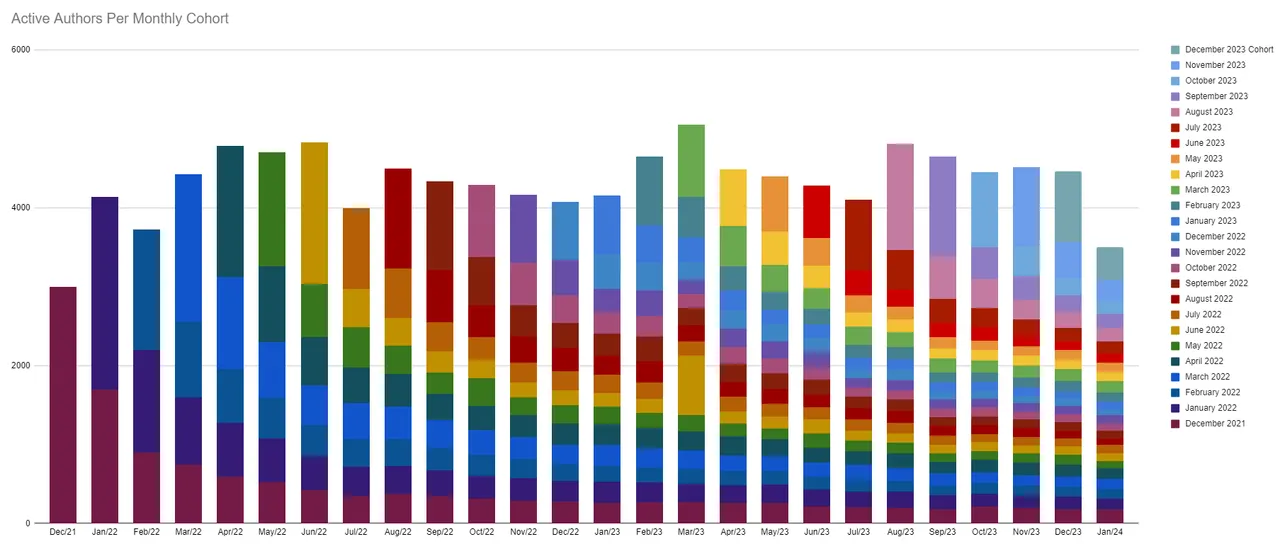
Let's look at how the OCD cohorts perform by comparison. These are all the same time periods, but only looking at the users onboarded by @ocd with referrals.
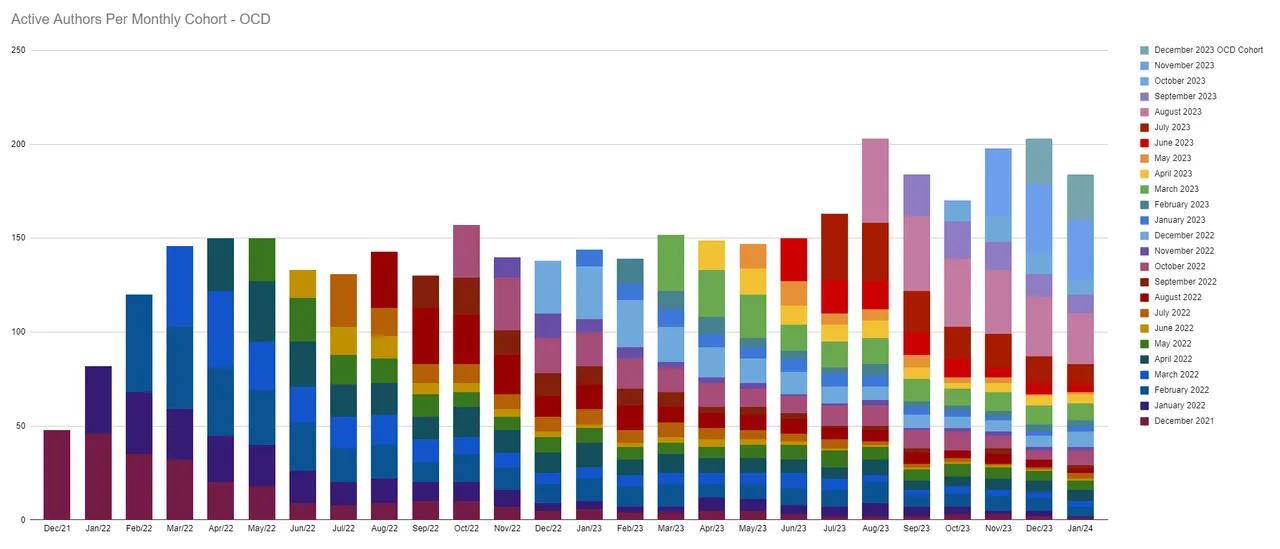
The difference in retention is immediately obvious. Where most users gave up quickly, OCD onboarded users stick around for much longer. Looking at the whole period 51.9% of active authors made another post in their second month. In comparison 93.44% of OCD onboarded users did the same. If we look at longer periods, such as 3 months later or 6 months later, OCD fares even better in comparison, more than doubling the average retention.
| Retention After... | Overall Retention | OCD Retention |
|---|---|---|
| 1 Month | 51.9% | 93.44% |
| 3 Months | 26.16% | 57.84% |
| 6 Months | 17.98% | 34.62% |
| 12 Months | 11.4% | 19.12% |
However the further you go out from there, the gap starts to narrow. It is likely that for longer periods, your likelihood of staying has less to do with how you were brought into Hive and is more determined by other factors.
We can also look at how the impact of better retention for OCD onboarded users accumulates over time. Although OCD created a mere 0.6% of user accounts since December 2021, they represent over 5% of all users who joined since then whom are still active in 2024.
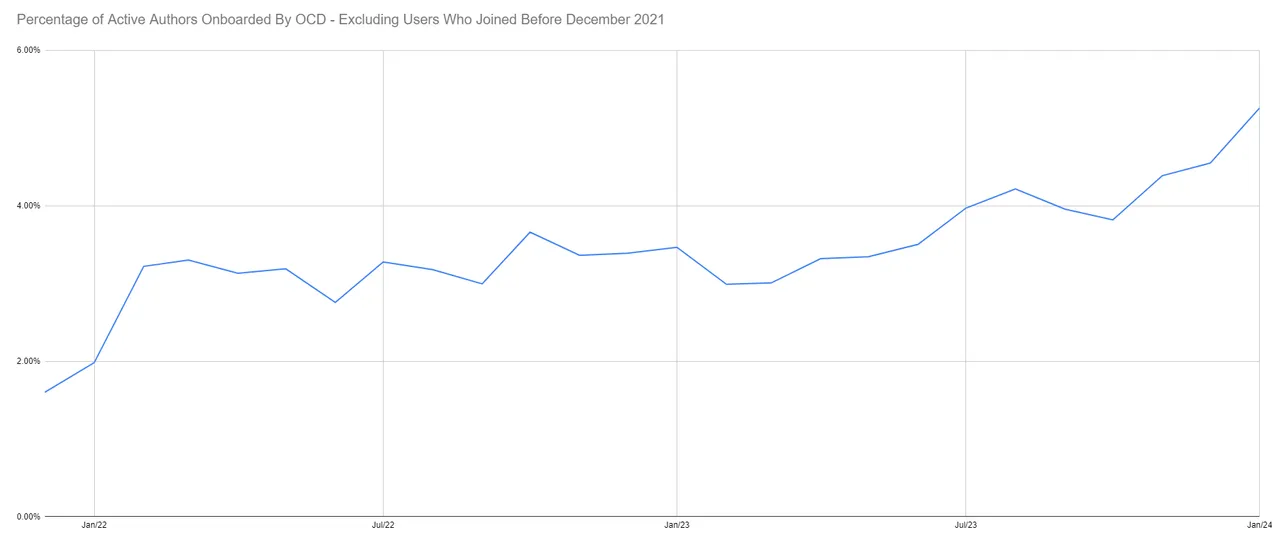
Activity Level
Posts Per Month
Let's take a look at the number of posts made by each cohort.
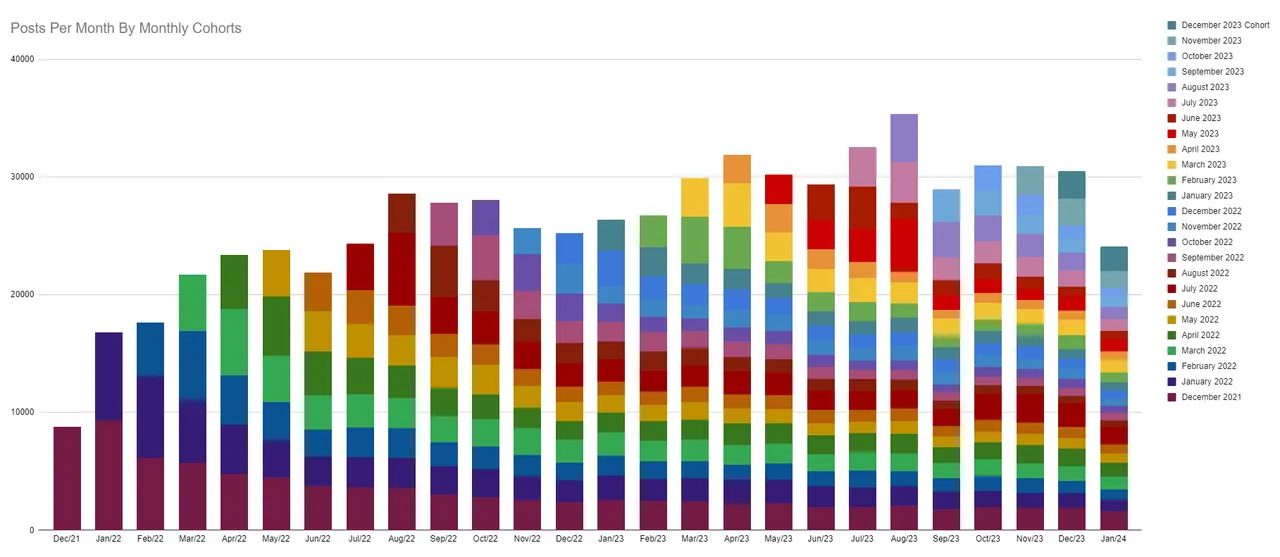
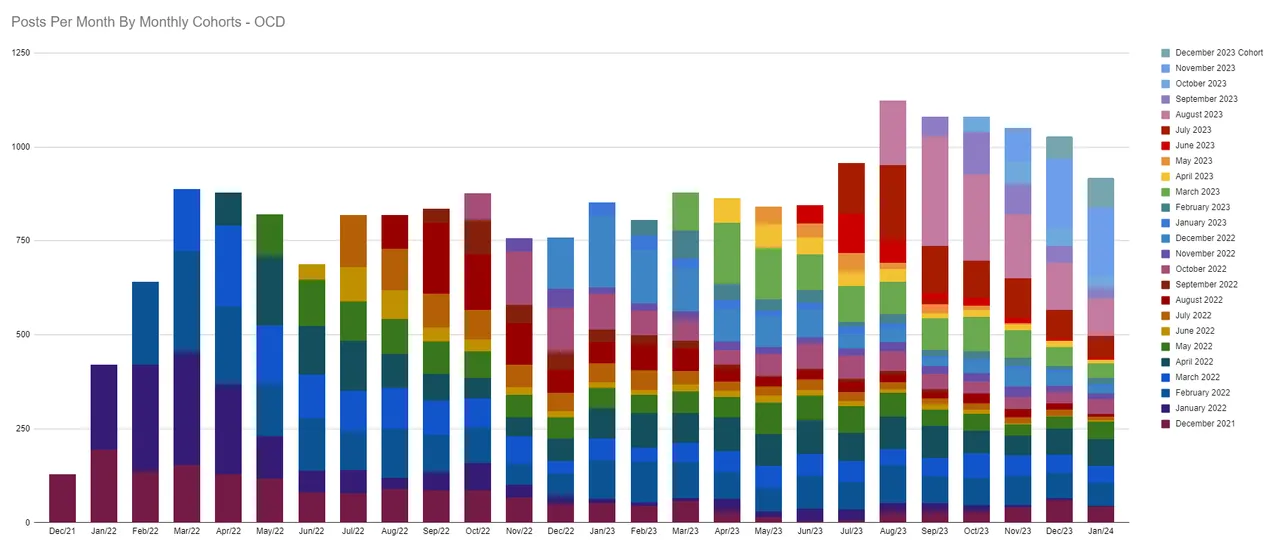
Users from all cohorts since December 2021 made 666934 posts since joining. Users onboarded by OCD made 21665 posts. That is a rate of 22 per all authors and 34 per OCD onboarded users.
Author Rewards
A chart for author rewards is likely to show the same story again, so forgive me but I will just share the overall rates of rewards for comparison. Overall users earned about $0.92 per post. OCD onboarded users earned $4 per post.
Conclusion
Users onboarded by OCD are much more likely to stick around on Hive for 6 months or longer. In general they also post more often and earn substantially more on posts.
Because of superior retention, the group of users onboarded by OCD grows over time, where the Hive userbase overall does not. It is still too small scale to make a large impact, and Hive rewards are close to a zero sum game so it is unclear if high OCD user retention makes overall retention higher or not.
An interesting thing I noted digging into the data is that some OCD cohorts just greatly outperform others. I can't say for sure why but I would speculate that perhaps when people join together as a group of friends, the likelihood of them sticking around and doing well on Hive may be strongly tied to their friends - if some leave the rest are more likely to as well, if they are doing well they stay as a group of friends, but again this is just my speculation.
What lessons do you think we can we learn from OCD onboarding and retention and how can we apply them to Hive as a whole?